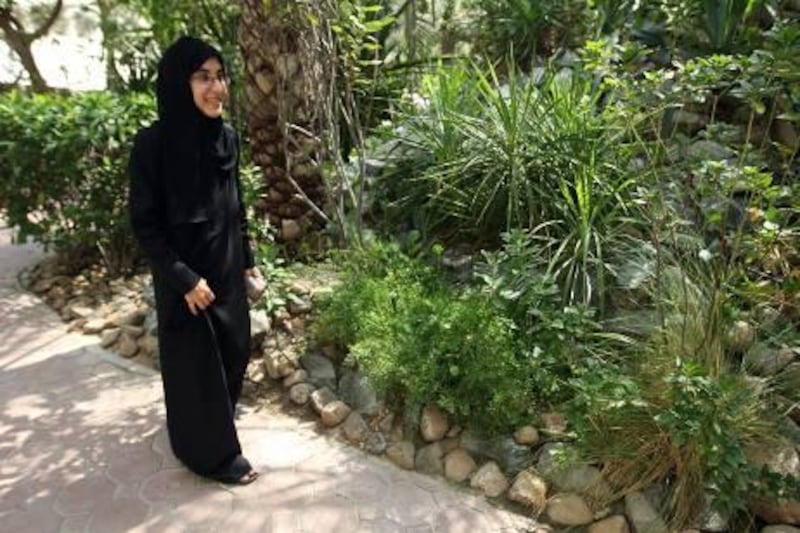ABU DHABI // New Emirati teachers are looking forward to more opportunities in public schools in September as part of the government's Emiratisation agenda - but being placed in boys' schools might pose a challenge for some.
The Abu Dhabi Education Council (Adec) announced its nationalisation plan last month and the programme will see hundreds of female Emirati teachers replace expatriates in boys' primary schools.
Dr Mugheer Khamis Al Khaili, the director general of Adec, said the aim was to open doors for newly qualified Emirati teachers.
State schools rely heavily on expatriate teachers, especially in boys' schools because of the lack of male Emirati teachers.
Khalthoom Al Marzouqi, who is working as an assistant teacher at Zayed University's Abu Dhabi campus while waiting for a position to open up in a school, said the programme would address the demographic imbalance in schools.
"Children need to have local teachers imparting their values and culture," she said.
Ms Al Marzouqi said boys might benefit from female teachers' "motherly approach", but said there was an urgent need to encourage more Emirati men into the profession.
"Right now there are too many non-nationals teaching in these schools and they need more Emirati male role models."
Fawzaya Malallah, who also qualified from Zayed University this year, said she would not be comfortable working in a boys' school. "I wear the niqab and would prefer an all-women environment," she said.
Ms Malallah said she might consider working in a primary boys' schools - but with reservations. "During my training I taught them and realised that men can better control boys."
Many freshly qualified female teachers feared they would find it difficult to maintain discipline with boys.
Asma Yousef Ibrahim, who studied at the Al Ain Women's College and spent some time teaching boys during her course, said dealing with "local boys was not easy".
"It's very different from teaching girls, as boys are very hyperactive and need special attention," she said. "Also, when you compare the results, boys are not doing very well academically too."
However, if recruited for a boys' school, she said she would take up the challenge.
"I notice there is a lack of motivation to learn in these schools and they only think about play.
"I want to work to change their idea of learning, make it more fun and interesting rather than just something you do to pass an examination."
Fatma Abdulla, the managing director of the education consultancy Global Consulting Associates, said many teaching graduates remained unemployed - largely because the profession has been saturated with expatriates and the authority has been slow to hire newly qualified teachers.
"This is an excellent employment opportunity for them, though there will be some initial reservations among them," she said.
"In some cultures where boys are socialised in a way where it is considered OK to be loud, female teachers may find it hard to discipline them."
But she said young teachers' fears could be assuaged if they were given adequate support.
"Education is a feminised profession around the world as they are seen as better role models," she said.
"But at the same time incentives for young men need to be increased because their impact and connection as teachers on boys will be more."
She said men would be better able to deal with behaviour problems, with boys more likely to look up to them.
Adec and the Ministry of Education have yet to say how many Emirati teachers they plan to hire this year.
Heads of federal institutions with teacher training programmes have long complained about the wait their graduates face before being placed in schools.
Robin Dada, the new head of education at Zayed University, said the delays acted as a deterrent for students. "There is a procedure and a list that the graduates go on to and they do not get picked up as fast as they would like," she said.
Dr Al Khaili said Adec was still finalising details, but planned to hire more than 1,000 licensed teachers from countries including the UK, the US and Australia.
Ms Ibrahim, who has applied for a job at an Adec school and hopes to specialise in special needs, said that despite the authority's promise to employ Emiratis, she was unsure whether that would include her.
"It seems like they are just testing the idea of Emiratisation - they still rely on teachers from the West," she said.
"We want Adec to trust our skills as teachers."






